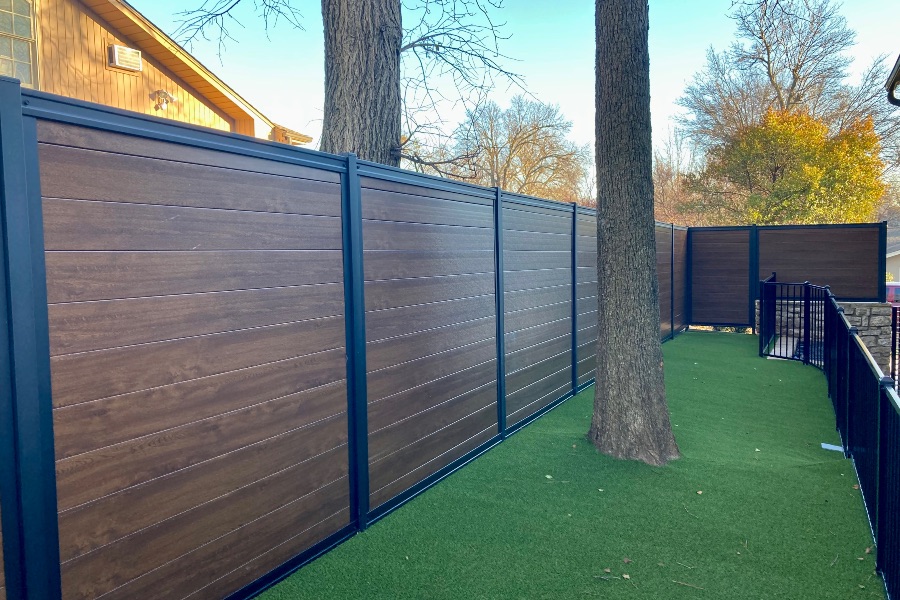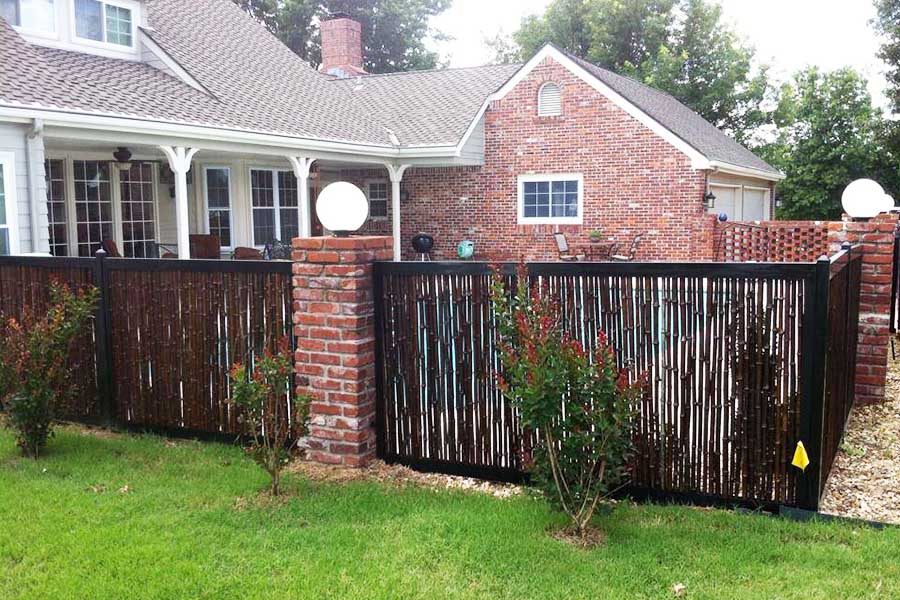All Categories
Featured
When you choose to set up a fence around your household home, it's important to recognize the permit needs details to your location. While setting up a fencing can appear like a straightforward home renovation project, local laws and laws must be followed to make sure the setup is lawful and certified. Falling short to secure the proper licenses can cause penalties or even require you to get rid of the fence. Right here's an extensive take a look at the licenses you may require for fencing installation.
Why Do You Required a Permit for Fencing Setup? A fencing is greater than simply an obstacle between homes-- it can impact safety and security, home worth, visual appeals, and even ecological problems. City governments call for authorizations to ensure that fences satisfy specific criteria and do not trigger troubles for utilities, next-door neighbors, or the neighborhood in its entirety. Licenses also make certain that the setup follows zoning laws, constructing codes, and safety and security guidelines.
![]()
Kinds Of Permits You Might Need. Structure Authorization. A structure authorization is one of the most common licenses needed for fencing setup. If you're constructing a fencing over a specific elevation (generally over 6 feet), you'll likely need a building license.
Zoning Permit. A zoning authorization guarantees your fence abides with obstacle, location, and elevation regulations. Fences might require to be set back a particular distance from sidewalks, roads, or home lines to prevent blockage or interference with utilities.
HOA Approval. If your building is component of a house owners organization (HOA), you might need to look for approval prior to setting up a fence. HOAs typically have standards that regulate the appearances and framework of fences to ensure they are in consistency with the community. You could require to submit your prepare for approval, and the HOA may limit fencing product, elevation, or style.
Specialized Permits. In some locations, there may be extra authorizations needed for particular situations. As an example, if your fencing is near a secured ecological location or situated in a disaster area, you might need to get specialized authorizations associated with ecological impact. If the fence is in an area with underground energies, you might require to obtain clearance to stay clear of damaging pipes or cable televisions.
![]()
Easement or Utility Company Consent. Before mounting a fencing, it's important to inspect whether the building consists of an easement, such as an utility easement, which might impact where you can put your fencing. Easements are areas of land marked for public or exclusive energies, and you may require consent from the energy firm or various other authority to develop within this location.
Just How to Learn What Allows You Required. To make sure that you're following all the essential guidelines, here's just how you can identify the particular licenses required for your fence installment:
![]()
Check Out Your City Government Office: The very first step is to contact your local building or zoning department. Lots of cities and regions have guidelines offered online that specify what sorts of authorizations are required for fence installment. Otherwise, calling or checking out the office in individual can aid clear up the process. Inspect Your City's Web site: Numerous towns give information regarding fencing setups and the permits required with their official sites. Some sites also permit you to submit applications on-line. Speak With a Fence Installation Expert: If you're uncertain about local laws, a specialist fence specialist can help. They know with the permitting procedure and can direct you with the steps. The Repercussions of Not Getting a Permit. Stopping working to protect the required licenses prior to installing a fence can lead to substantial consequences. You may be fined or required to remove the fence entirely. Additionally, if you choose to offer your residential property in the future, the lack of a license could discourage prospective purchasers, as they might see it as an indication that the residential or commercial property is not certified with neighborhood laws. Guaranteeing that you have the correct permits will certainly conserve you time, money, and frustrations over time.
Conclusion. Setting up a fencing around your home can include both security and aesthetic appeal, yet it is essential to ensure you're following the legal action in the procedure. Researching the particular authorization demands for your location, including building authorizations, zoning laws, HOA authorization, and energy authorizations, will aid guarantee your fence installment goes efficiently. Putting in the time to recognize these requirements now can save you from costly errors and prospective legal concerns down the line.
Why Do You Required a Permit for Fencing Setup? A fencing is greater than simply an obstacle between homes-- it can impact safety and security, home worth, visual appeals, and even ecological problems. City governments call for authorizations to ensure that fences satisfy specific criteria and do not trigger troubles for utilities, next-door neighbors, or the neighborhood in its entirety. Licenses also make certain that the setup follows zoning laws, constructing codes, and safety and security guidelines.

Kinds Of Permits You Might Need. Structure Authorization. A structure authorization is one of the most common licenses needed for fencing setup. If you're constructing a fencing over a specific elevation (generally over 6 feet), you'll likely need a building license.
Zoning Permit. A zoning authorization guarantees your fence abides with obstacle, location, and elevation regulations. Fences might require to be set back a particular distance from sidewalks, roads, or home lines to prevent blockage or interference with utilities.
HOA Approval. If your building is component of a house owners organization (HOA), you might need to look for approval prior to setting up a fence. HOAs typically have standards that regulate the appearances and framework of fences to ensure they are in consistency with the community. You could require to submit your prepare for approval, and the HOA may limit fencing product, elevation, or style.
Specialized Permits. In some locations, there may be extra authorizations needed for particular situations. As an example, if your fencing is near a secured ecological location or situated in a disaster area, you might need to get specialized authorizations associated with ecological impact. If the fence is in an area with underground energies, you might require to obtain clearance to stay clear of damaging pipes or cable televisions.

Easement or Utility Company Consent. Before mounting a fencing, it's important to inspect whether the building consists of an easement, such as an utility easement, which might impact where you can put your fencing. Easements are areas of land marked for public or exclusive energies, and you may require consent from the energy firm or various other authority to develop within this location.
Just How to Learn What Allows You Required. To make sure that you're following all the essential guidelines, here's just how you can identify the particular licenses required for your fence installment:

Check Out Your City Government Office: The very first step is to contact your local building or zoning department. Lots of cities and regions have guidelines offered online that specify what sorts of authorizations are required for fence installment. Otherwise, calling or checking out the office in individual can aid clear up the process. Inspect Your City's Web site: Numerous towns give information regarding fencing setups and the permits required with their official sites. Some sites also permit you to submit applications on-line. Speak With a Fence Installation Expert: If you're uncertain about local laws, a specialist fence specialist can help. They know with the permitting procedure and can direct you with the steps. The Repercussions of Not Getting a Permit. Stopping working to protect the required licenses prior to installing a fence can lead to substantial consequences. You may be fined or required to remove the fence entirely. Additionally, if you choose to offer your residential property in the future, the lack of a license could discourage prospective purchasers, as they might see it as an indication that the residential or commercial property is not certified with neighborhood laws. Guaranteeing that you have the correct permits will certainly conserve you time, money, and frustrations over time.
Conclusion. Setting up a fencing around your home can include both security and aesthetic appeal, yet it is essential to ensure you're following the legal action in the procedure. Researching the particular authorization demands for your location, including building authorizations, zoning laws, HOA authorization, and energy authorizations, will aid guarantee your fence installment goes efficiently. Putting in the time to recognize these requirements now can save you from costly errors and prospective legal concerns down the line.
Latest Posts
Check Out the Best Auto Repair Discounts in Montclare, Chicago
Published May 27, 25
1 min read
Why Chicago Drivers Select Montclare Auto Repair for Reliable Service and Significant Savings
Published May 26, 25
1 min read
Find Out How WyHy Federal Credit Union Saves You Money on Loans and Savings
Published May 25, 25
1 min read
More
Latest Posts
Check Out the Best Auto Repair Discounts in Montclare, Chicago
Published May 27, 25
1 min read
Why Chicago Drivers Select Montclare Auto Repair for Reliable Service and Significant Savings
Published May 26, 25
1 min read
Find Out How WyHy Federal Credit Union Saves You Money on Loans and Savings
Published May 25, 25
1 min read